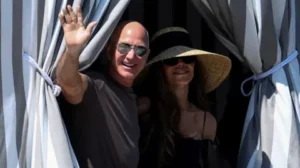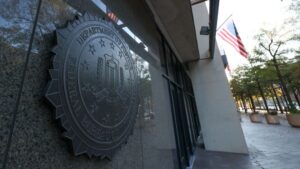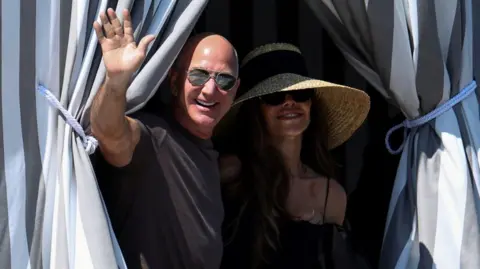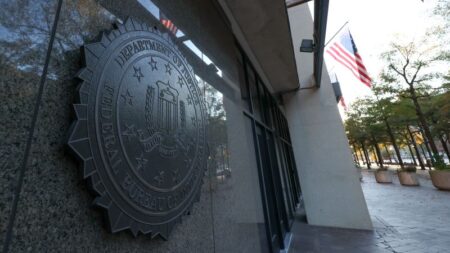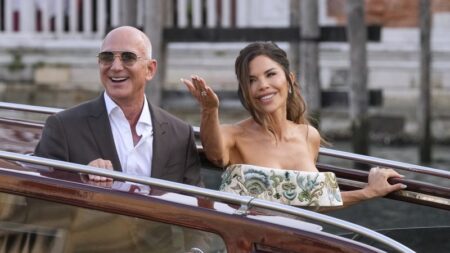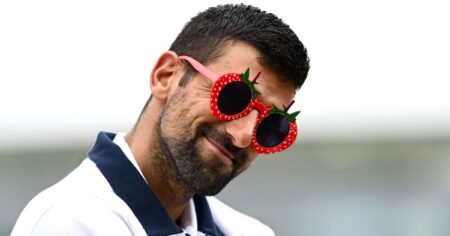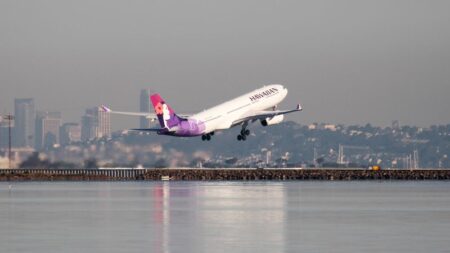The breathtaking city of Venice finds itself at a crossroads as it hosts the opulent wedding celebration of Jeff Bezos, the founder of Amazon, and Lauren Sanchez, a well-known television presenter. Spanning across multiple days, the lavish event culminates this evening with a grand gala. However, this extravagant affair is not without its controversies and complications, as protests erupt among local Venetians who are deeply concerned about the repercussions of such high-profile occasions on their beloved city’s stability and character.
As the couple’s star-studded guests emerge from their luxurious accommodations, taking water taxis through the picturesque canals, some residents gather to voice their dissent. Protesters come from various backgrounds, united by distinct yet overlapping grievances—ranging from objections to excessive tourism, which has become a severe issue in the vulnerable city, to broader cries against climate change and the overwhelming influence of capitalism. While the activists initially considered taking more drastic measures, such as floating crocodile inflatables in the canals, their plans were dialed back, opting for a more traditional march instead.
Throughout the day, Bezos was spotted in the iconic Harry’s Bar, readily engaging with the media. In a brief encounter with a local journalist who inquired about the protests, Bezos responded by blowing kisses towards the cameras. His demeanor seemed unfazed by the public unrest, prompting a dismissive response from Simone Venturini, the city’s deputy mayor. Venturini characterized the protesters as “narcissists,” insisting that the wedding represents the “high-quality tourism” that Venice desperately needs. He expressed hope that such events would stimulate the wedding industry in the city, asserting that Venice should not dictate who can celebrate their love within its storied confines.
As anticipation builds for the evening’s celebration, it is notable that for security reasons, the wedding’s final event has been relocated from the city center to the Arsenale, an area easier to secure. This shift highlights the challenges posed by the international spotlight on the festivities. Paola, a member of the Extinction Rebellion group, underscores her frustration about the wedding guests arriving on private jets and emphasizes the toxicity of such elitist behaviors. She claims that the mass influx of tourists is suffocating the city, with wealthy individuals treating Venice more like a theme park than a treasured historical locale.
The Italian media have dubbed this event the “wedding of the year,” further fueling its status as a cultural spectacle. Coverage has noted the presence of 200 celebrity attendees, including the likes of Leonardo DiCaprio and Kim Kardashian. Among the details highlighted are the culinary offerings, consisting of the region’s specialties, and the bride’s stunning Dolce & Gabbana gown, reportedly inspired by actress Sophia Loren. Despite the high-profile nature of the event, reports suggest that disruptions have been minimal, allowing the city to function relatively normally. Other tourists and locals are able to navigate the canals without significant obstructions, although a few streets experienced temporary closures around event venues.
Simultaneously, the local sentiment toward such events remains mixed. While some residents mourn the gradual loss of their community to tourism, others, like 77-year-old Roberto Zanon, remain appreciative of the celebrity focus on Venice. Despite his impending eviction from a home he has known his entire life due to rising real estate prices linked to tourism, he expresses pride at having famous visitors in a city he cherishes.
Conversely, other Venice dwellers vocalize the need for a shift in tourism, yearning for wealthier visitors who make substantial contributions to the economy rather than the short-term, lower-spending tourists who frequent the area. A souvenir shop owner named Leda conveys optimism regarding the Bezos celebration, suggesting that the city deserves better than “trash tourism,” as she describes the influx of tourists who do little to support the local economy.
Overall, the billionaire’s wedding calls into question the balance between honoring tradition and accommodating economic opportunities for a city under strain from its own popularity. Local activists remain skeptical of the long-term benefits, pointing out that any financial boon from high-profile events pales in comparison to the broader impacts of tourism-driven migrations that threaten Venice’s essence and heritage.

